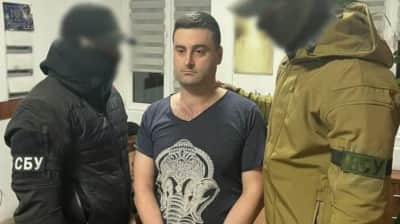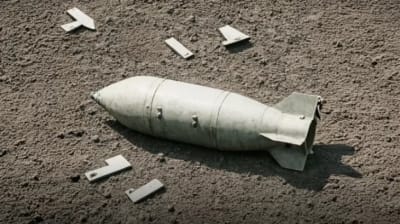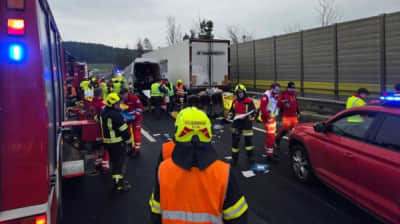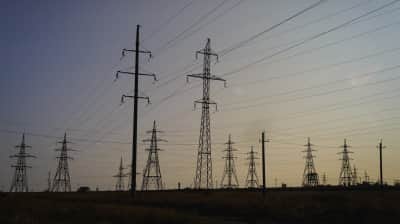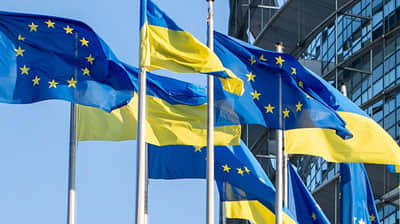5 must-see documentaries about the war in Ukraine
The Chronicles of War, Love and Hate is a project that was launched in Ukraine when Russia’s full-scale offensive began on 24 February 2022; it gathers documentary footage about the war.
Contributors film reports on pressing issues faced by people in different parts of Ukraine as a result of the Russian invasion, from the liberated Kyiv Oblast to the city of Chernihiv, which withstood a Russian siege.
Below are five must-see documentaries that show how ordinary people keep going amidst and in spite of the war selected by Ukrainska Pravda.Zhyttia (Life).
***
My Children Died in Azovstal tells the story of Rollana Bondarenko, a veteran of the Azov Battalion. Her son Vitalii Taranin and daughter-in-law Alla Taranina were killed at the Azovstal plant during the siege of Mariupol.
Rollana’s family left the Russian-occupied territory of Donetsk Oblast and settled in Mariupol in 2014; she joined what was then the Azov Volunteer Regiment. Mariupol was where they met the beginning of Russia’s full-scale invasion of Ukraine on 24 February 2022. Vitalii decided, without hesitation, that he would stay and defend Mariupol but wanted Alla to go somewhere safe with their son. She had other plans, joining him in Mariupol; her father took their son to a safer location.
Vitalii was injured and ended up in the hospital set up in an Azovstal bunker. He was killed there on 15 April 2022, during Russian shelling. On 8 May, Russian forces dropped a multi-tonne bomb on the plant, destroying the bunker and killing Alla. Now it’s just Rollana and her grandson.
There Will Be No Lessons Today and Tomorrow
There Will Be No Lessons Today and Tomorrow is a documentary that depicts a generation of young Ukrainians who were expecting a bright future, but ended up being caught up in the great war.
The documentary follows students from a Chernihiv school preparing for the graduation and prom they’ve spent so long dreaming about, as they make their dresses and learn to waltz. Russia’s full-scale invasion of Ukraine wrecks both their plans and their city.
Teenagers – the film’s protagonists – and their families are forced to get on with their lives amid fear and uncertainty. Chernihiv was under the Russian siege for one month, one week, and one day, and the film shows the city trying to grapple with what it’s been through after the Russian forces withdrew. The film follows the graduating class as they try to understand why Russia destroyed their homes and their lives, and to figure out how to keep living.
A City Bordering with Darkness follows Sasha, a resident of Kharkiv who stays put despite almost daily Russian attacks on the city. Sasha’s apartment was hit by Russian missiles twice. The first one claimed the lives of his cat Bim and his birds.
Sasha moved to the basement of a nine-storey building. The frontline can be seen from its top. Meanwhile, he shares the basement with an elderly neighbour and several cats. He uses his mobile phone to film his daily life and sends those videos to his former neighbours who have evacuated from Kharkiv and to people he knows in Russia.
The footage in A City Bordering with Darkness has been filmed in Kharkiv over three months in 2022, including footage recorded while Sasha and his colleague Mariia Shevchenko sat on the roof of the nine-storey building, waiting to film missiles being launched on Kharkiv from Belgorod, Russia.
The war forced hundreds of families to part, and Farewell tells the story of a couple separated by the war. Viktoriia started helping with humanitarian aid from the beginning of the full-scale invasion, while Yura prepared to join the army. The couple decided to get married, but Ukraine’s civil registration offices operate on a peculiar schedule, registering marriages on some days and deaths on others. With no time to spare, Yura and Viktoriia came to the office on the "death day" begging to register their marriage.
Viktoriia’s only way to see her husband after he left for the front was to come to his military unit as a volunteer. Instead of preparing for wedding celebrations, she worked to deliver ammunition, food and other necessities to frontline soldiers. The video shows the couple’s farewell at a train station.
The Polish Border Crossing tells the stories of women and children crossing the Polish border to escape Russian missiles and soldiers. Some of them spend hours in the queues, morning to night. The kids look at once exhausted and nervous, agitated. Volunteers try to ensure that everyone has enough food and warm clothes to help make the border crossing a bit easier.
Many of the women can’t leave Ukraine because of elderly relatives they have to look after or because they don’t want to live behind their sons who joined the army. Wives, daughters and mothers have to flee on their own, because Ukraine’s law prohibits men aged 18-60 from leaving the country during martial law. Volunteers help organise cars and buses to help Ukrainian refugees get to a refugee centre in Poland, where they will have to find new homes.
All of these videos are part of the Chronicles of War, Love and Hate project run by the WE: Media Theater, which seeks to tell the stories of Ukrainians from across Ukraine as the Russian-Ukrainian war unfolds. WE: Media Theater’s films and videos have been widely shared by media in Poland (OKO.press), Switzerland (NZZ Format), Slovakia (EURACTIV, SME.SK), Taiwan (MNews), and the UK (Channel 4 and Lyfta).
Ukrainska Pravda is the place where you will find the most up-to-date information about everything related to the war in Ukraine. Follow us on Twitter, support us, or become our patron!

